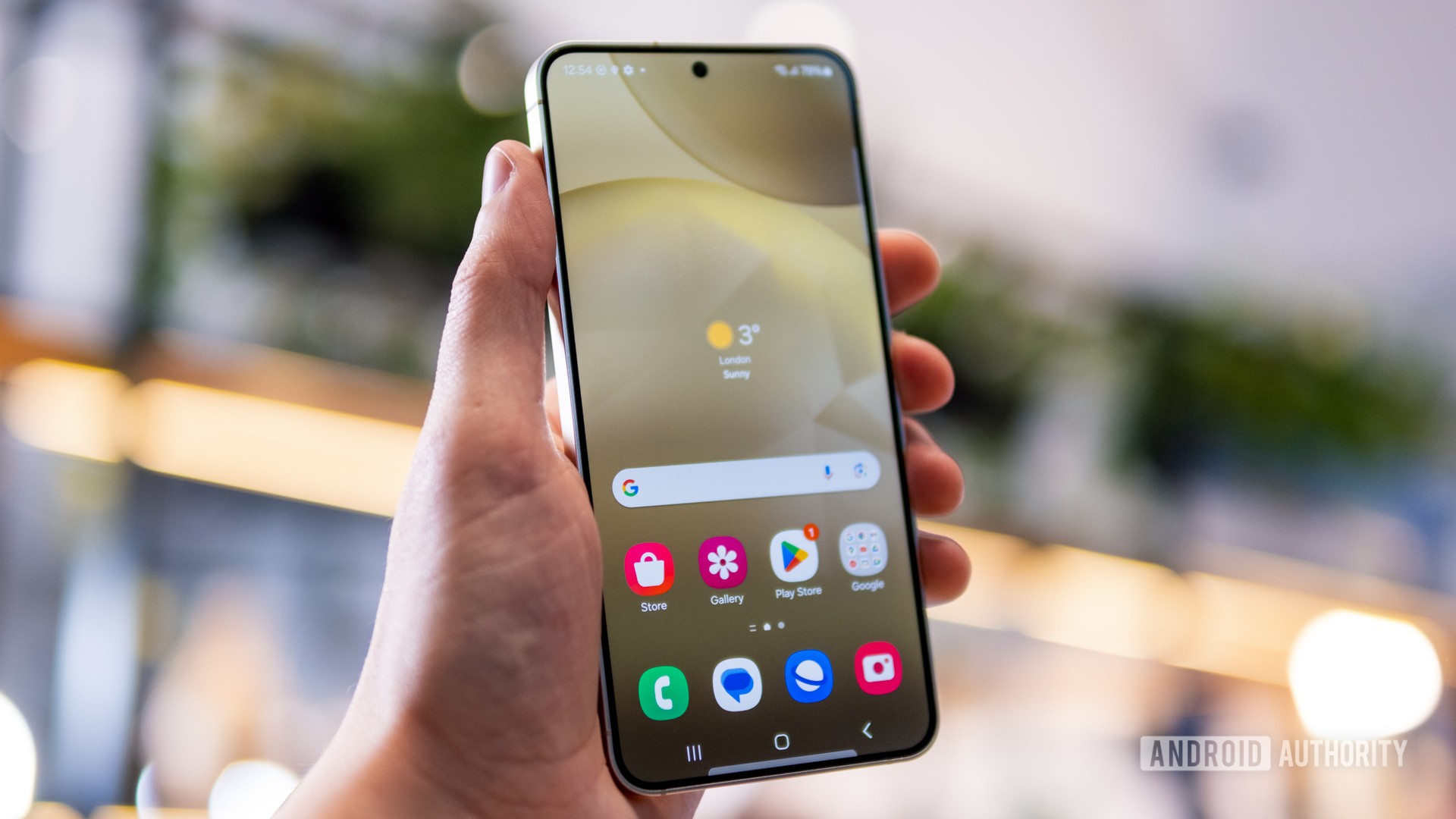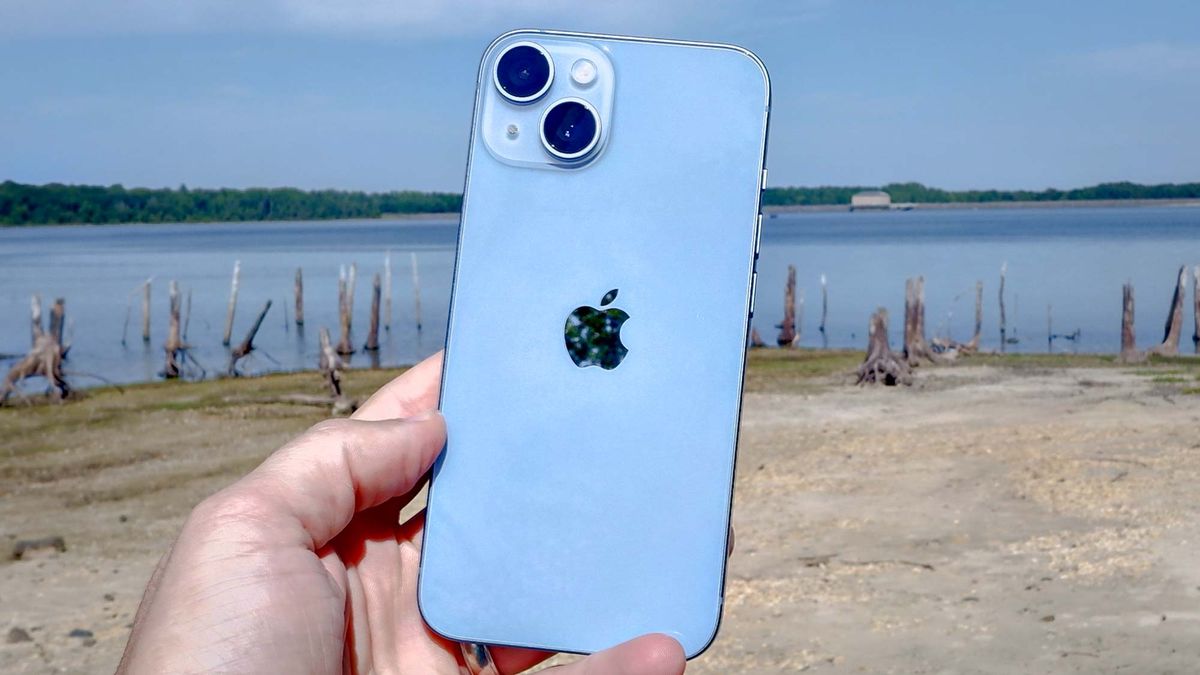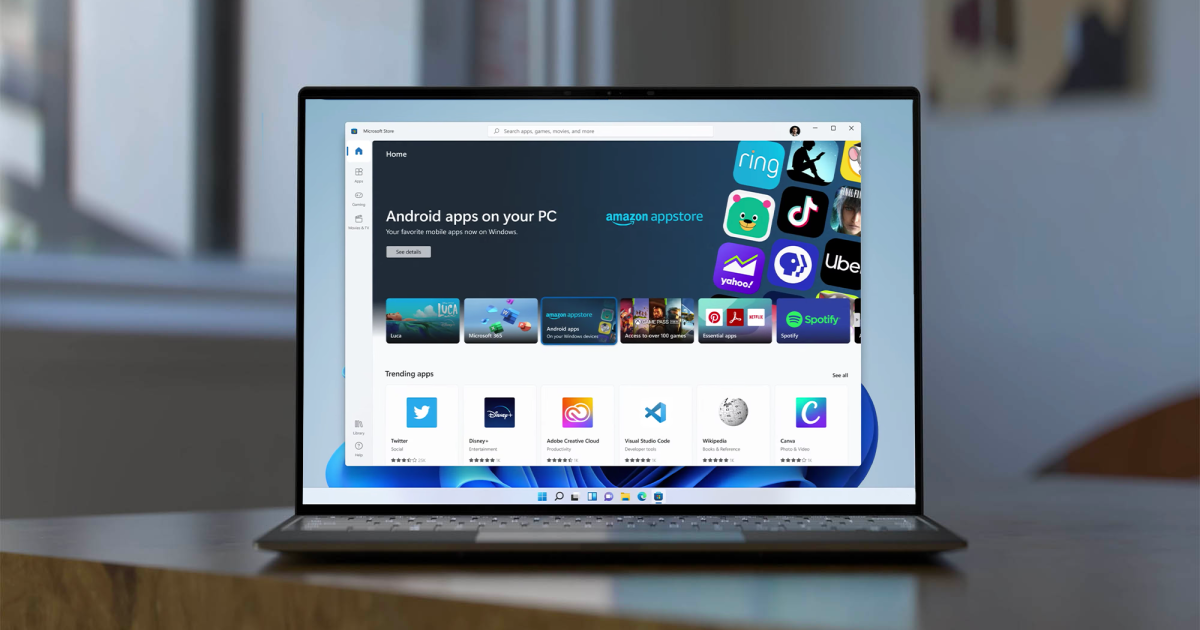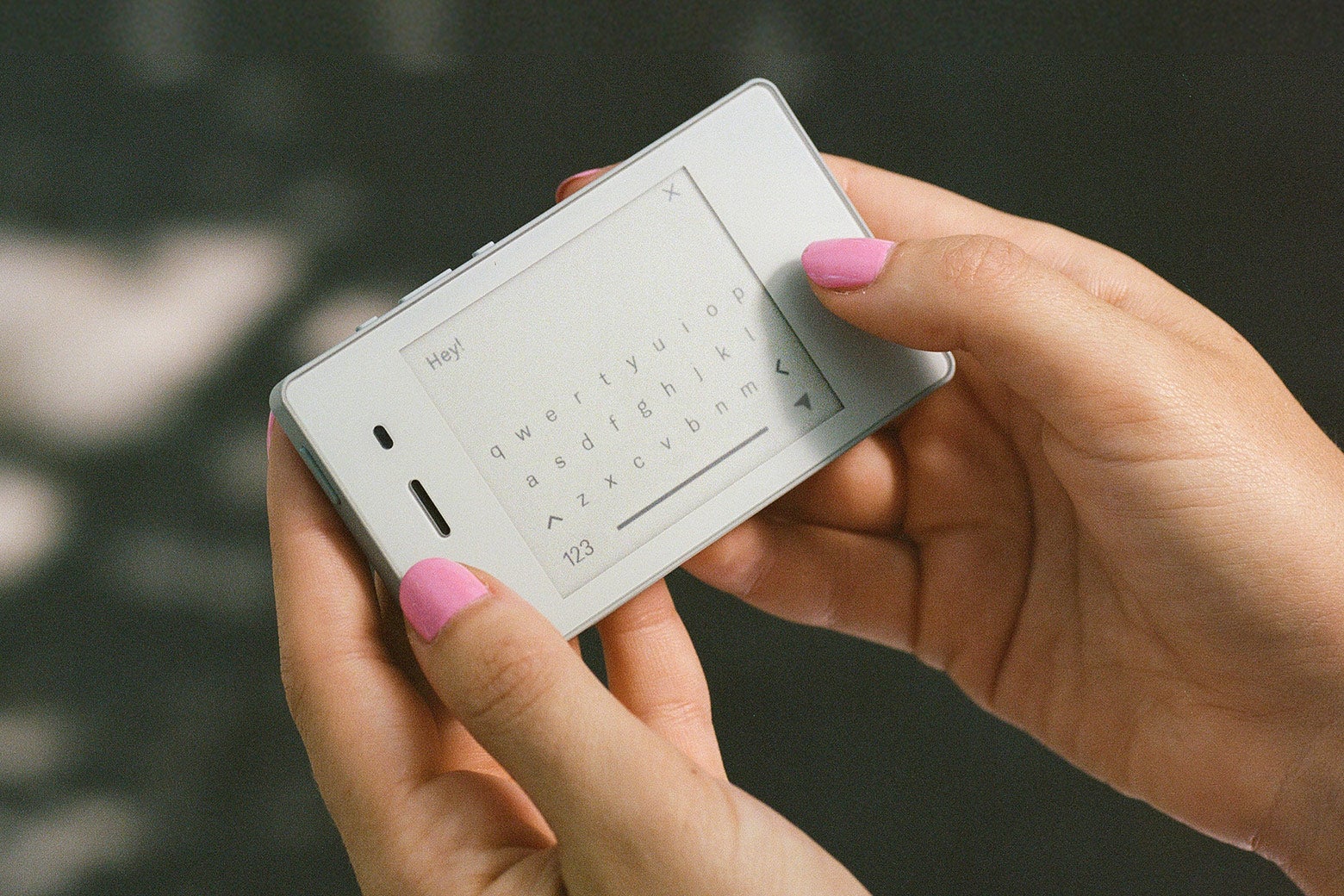“I don’t know, Dad … it seems a little clunky,” my 12-year-old son said as I fumbled with my new Light Phone II. This was a replacement for my failing iPhone. I had decided not to get a new iPhone, or any other smartphone. I needed a break. I would go into the new year without a smartphone, to see how it felt.
My son was right: It was clunky—a little slower and a lot less whizbang-slick than iPhones had numbed me to expect. But this was the point, wasn’t it? To be a little more clunky, to consciously tap the brakes on my everyday life?
A week later my son noted in passing, “You’ve been spending a lot more time with us since you got your new phone.” That matter-of-fact comment stopped me in my tracks. It was true. Had my smartphone really pulled me away from my family so much? If so, what else might it have been distracting me from, all these years? Don’t worry: I’m not going to tell you how much better your life will be if only you get rid of your smartphone. It’s more complicated than that.
A November Wall Street Journal article about a small school in Massachusetts that banned smartphones had tipped me off to the Light Phone II, which the students and teachers had adopted as an alternative. With well-designed simplicity, it is made for calls and text messaging only. Its small screen is black and white, using e-ink technology, Kindle-like. The size reminds me of an old iPod Touch. The original Light Phone came out in 2017; the improved second model was released in late 2019. The Light Phone II comes factory installed with three tools: a phone, messages, and an alarm. That’s it. They offer a handful of other tools (they call them tools, not apps), but they are relatively basic, such as a music player, a tool for typing and saving notes, and a simple map and directions tool.
The company’s tagline is “a phone for humans.” Their website is minimalist and calming, monochrome and spare. Their advertising language is upfront, clear, and decidedly critical in message, mentioning “surveillance capitalism” and “the attention economy” as reasons people might choose to buy their product. (They’ve done their homework.) They state clearly that their phones will never accommodate social media or an internet browser. “Going light,” as they call it, is a conscious philosophical stance as much as it is a consumer decision. It would be easy to sneer at the Light Phone website as a set piece from Portlandia or an extended SNL gag. Except it’s not a joke; the earnestness is buoyed by a real, useful product. The Light Phone II retails for $299—a lot for a little, but still far less than a new iPhone.
I had been gradually decreasing my dependence on my iPhone for a couple of years: first downgrading to an old SE after my last phone fell and its screen shattered, then deliberately not using email on my phone, and then deleting social media apps. As the battery degraded to its nadir (15 minutes of life on a full charge, if I was lucky!), I admitted to myself that I finally needed to get something new. It was right around this time that the Light Phone came on my radar—so I ordered one. I wasn’t planning to join a movement or be a rebel. I just wanted a simpler phone.
But it turns out that it is a movement, and one that could be gaining momentum—against all odds. Every couple of years it pops back up in the news cycle: people gleefully (sometimes smugly) ditching their smartphones. This may be little more than a fringe movement, reflective only of the far broader mass appeal of smartphone use. It’s easy to dismiss self-proclaimed “refusers” as nostalgic hippies, snooty hipsters, or truculent kids. We all have a friend who stubbornly still uses a flip phone. But maybe these freaks are becoming mainstream.
As far back as 2016, Alan Jacobs was writing for the Atlantic about this trend, noting that in a world where more and more people communicate (and live through) their smartphones, the move to downgrade can be profound. Jacobs finds that one of the remarkable things about his dumbphone is that “It’s just a phone. I don’t think about it. I even accidentally leave the house without it sometimes. It’s not me in the way my iPhone was.” It is worth considering how this feeling of ontological convergence—our smartphones as extensions of our bodies—was only exacerbated during periods of lockdown, quarantine, and working remotely. The feelings of relief that Jacob described in 2016 could be even more profound, now.
In a 2019 article for the Guardian about her choice to deliberately simplify her life with a dumb phone, Alice O’Keeffe observed that after just a couple of weeks without her smartphone, she felt “more centered, less distracted, less edgy.” O’Keeffe suggests, “At the moment we live in a world in which it is still possible to choose to disconnect. In [the] future we may not have that luxury.” From a pre-pandemic perspective, this tone of caution concerning a hegemonic domination of the digital made a certain amount of sense. Now, however, after our recent years of Zoom exhaustion and screen fatigue, more people may be seeking the kind of reprieve that O’Keeffe gave voice to. The tech takeover may not seem quite so inevitable.
More recently, Max Fletcher explored in the Guardian some of the philosophical reasons to refuse smartphones and all they entail. For example, Fletcher argues that “smartphones can make people worse at performing everyday tasks. Basic orienteering skills and transport knowledge have been outsourced to apps.” Some of this culture of refusal can risk sounding sanctimonious, and a choice more easily entertained by the already privileged and able-bodied.
Yet given recent upheavals around social media companies, as well as widespread weariness amid the collective long haul of COVID and our corollary immersion in personal digital technologies, it is possible that broader demographics could consciously choose to shift away from these devices. The future of phones might be, well, dumber—and their operators be better for it.
When I first showed my university students my Light Phone II and its limited features, they gasped. Several asked me how to get one, and they seemed serious in their curiosity about a different, simpler phone.
I’ve noticed an atmospheric shift in the college classrooms where I teach, as more students each year bemoan their phones rather than fawn over them. My students seem to be onto the scheme: These things that for so long promised endless entertainment and convenience have become burdensome—brimming with overwhelming, obligatory tasks. Charge me. Update me. Check me. Restart me. Ding. I see my students’ flustered faces when they haul out their phones; something is changing.
What I think my students are tuning into is part of what media theorist Ian Bogost once aptly called “hyperemployment.” This is a subtle kind of labor—from the late-night work email, to the colleague who texts you during your commute to the office, to swiping away pop-up ads—that seeps into everything you do. Or rather, everything you do feeds revenue streams somewhere, and you may or may not be making or saving money while doing it. Incremental units of our life force trickle toward unseen entities that are constantly skimming the profits off this mundane, digitally-enabled labor. And it’s cumulatively taxing.
Due to people maxing out on hyperemplyement, we might be approaching a critical threshold past which smartphones become less ubiquitous. There could even be another “great resignation” in the offing, but directed toward people quitting their smartphones. It sounds outlandish, but it is worth considering a future without smartphones—at least for some. It might not even need to be mass exodus, to be significant: It may just be that smartphones could become less monolithic as a personal technology.
Intentionally downgrading is not for everyone. Some people simply don’t seem to feel the same negative effects of constant connectivity. Others’ lives don’t give them the option to downgrade. A lot of this is due precisely to what constitutes work these days. For gig economy workers, the smartphone is an inextricable part of the fabric of life. In fact, many jobs now all but require the kind of networked scheduling and instantaneous file-sharing that smartphones facilitate. And then there are so many other more mundane, domestic, and sometimes toxic relationship entanglements that can make smartphone usage feel mandatory.
Still, a sea change may be on the verge of happening. Many who have deactivated their Twitter accounts or other social media presence over the past year cite their mental health a justification or rationale. And this makes sense, as we find ourselves still in the long shadow of a pandemic wherein so much labor and leisure time was spent online. Yet the real mental health drag is more pervasive and daunting than just social media. For many, the sources of depression and anxiety are located not so much out there online, but rather centered in our pockets—if not already in our palms.
As Jenny Odell writes at the New York Times, about breaking free from the gravitational pull of social media, “Letting go of one overwhelming rhythm, you invite the presence of others.” And if it’s true that, as Odell suggests, “some of the things you originally came to social media looking for, including things you’ve never found, might be available through slower, less commercial channels, which have less of an incentive to suck you in”—this is accurate with respect to smartphones more broadly, as well. Perhaps giving up smartphones could open new (or forgotten) forms of social life.
The poet Ross Gay ponders this possibility in his new book Inciting Joy, admitting that while not everyone may be excited to leave their smartphone behind, it can turn out to be a refreshing jolt:
Believe me, I know there is nothing more boring than what I am doing right now, this Luddite’s lament, I know, unless you agree with me about, in this case, the ubiquitous surveilling, data-gathering, narcissism/alienation machines, mystery killers, time keepers, cameras: could we please not look it up, could we please take fewer pictures, could we please just be here together for a sec without documenting that we were, I swear to you life is still life even when you don’t take a picture, I don’t care what you ate for breakfast. …
Gay’s essay goes on to narrate the story of when he lost his smartphone in New York City, and the joys he found in its stead. It starts off a bit scolding, but get past that and ultimately Gay’s wager is simply that we might welcome chances to disconnect—even if they come by accident. It’s a relatively modest parable, but with far-reaching implications: beyond the screen of a smartphone, a vibrant, dynamic world awaits.
As I write this, it’s been about a month since I began using my Light Phone II. I can relate to what Alice O’Keeffe wrote about at the Guardian: I felt more centered and less distracted, especially during those first weeks. I relished reading actual books before bed, again. I savored not taking so many pictures, not constantly curating images and videos. I was acutely aware of not habitually browsing the internet in spare moments of waiting.
But over time these initial feelings faded, and a weird thing has been happening: My phone just became a phone. And the sublime sensation of not being on a smartphone has morphed into other things: plain boredom sometimes, and the routines ordinary life, the rest of the time. Having a Light Phone II instead of an iPhone wasn’t exactly a revelation, then. It was just a downshift of sorts. I’m still sending plenty of emails from my computer and keeping up with the news there, and meanwhile learning to text more quickly on my slightly lighter phone. Don’t get me wrong: I like my new phone. It’s well designed and pleasant to use. I’ll stick with it, for sure. It’s just been less, as well as more, than I ever expected.
I suppose an analogy might be this: At first ditching your smartphone can seem like going hardcore vegan, or adopting some other extreme diet regimen. The initial clarity and rejuvenation are euphoric. It’s tempting to sound the alarm, to recruit others to join the cause. But as things settle down, you realize, no, you haven’t cut out entire swaths of things to consume, not exactly. You’ve only changed the quantity and form of intake. We’re all omnivores; it’s just a matter of scale.
Future Tense
is a partnership of
Slate,
New America, and
Arizona State University
that examines emerging technologies, public policy, and society.








